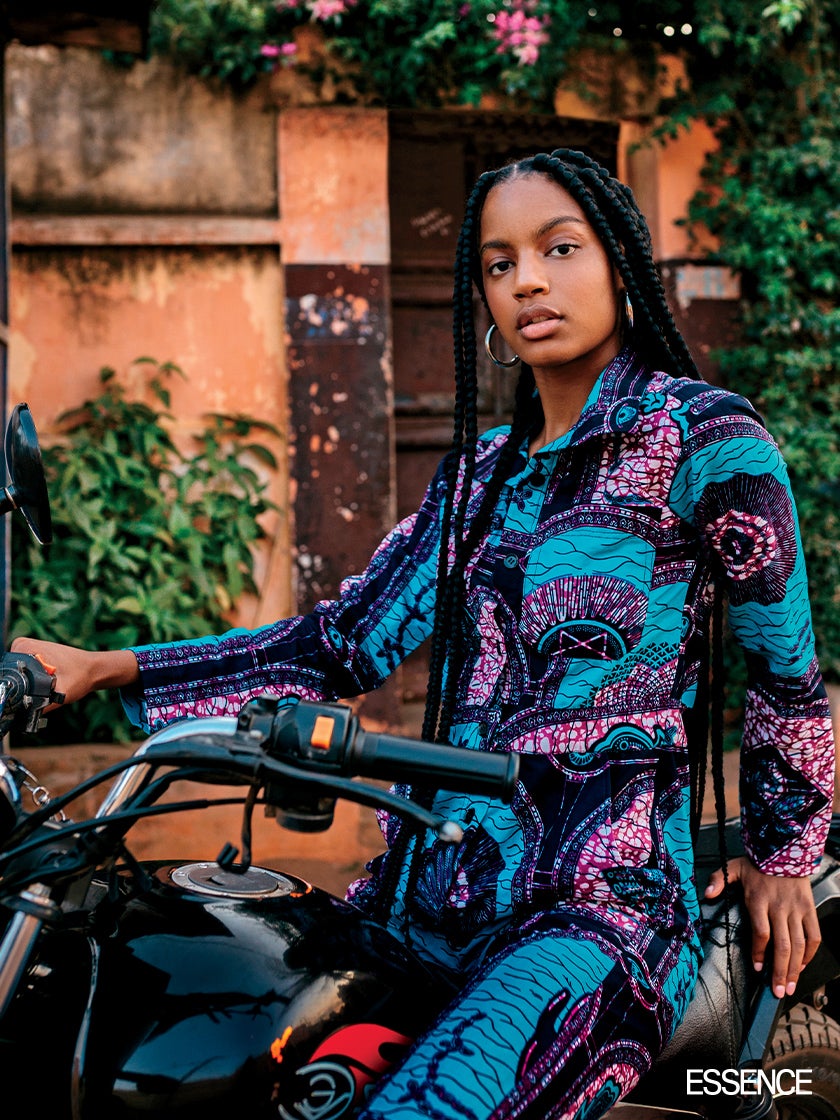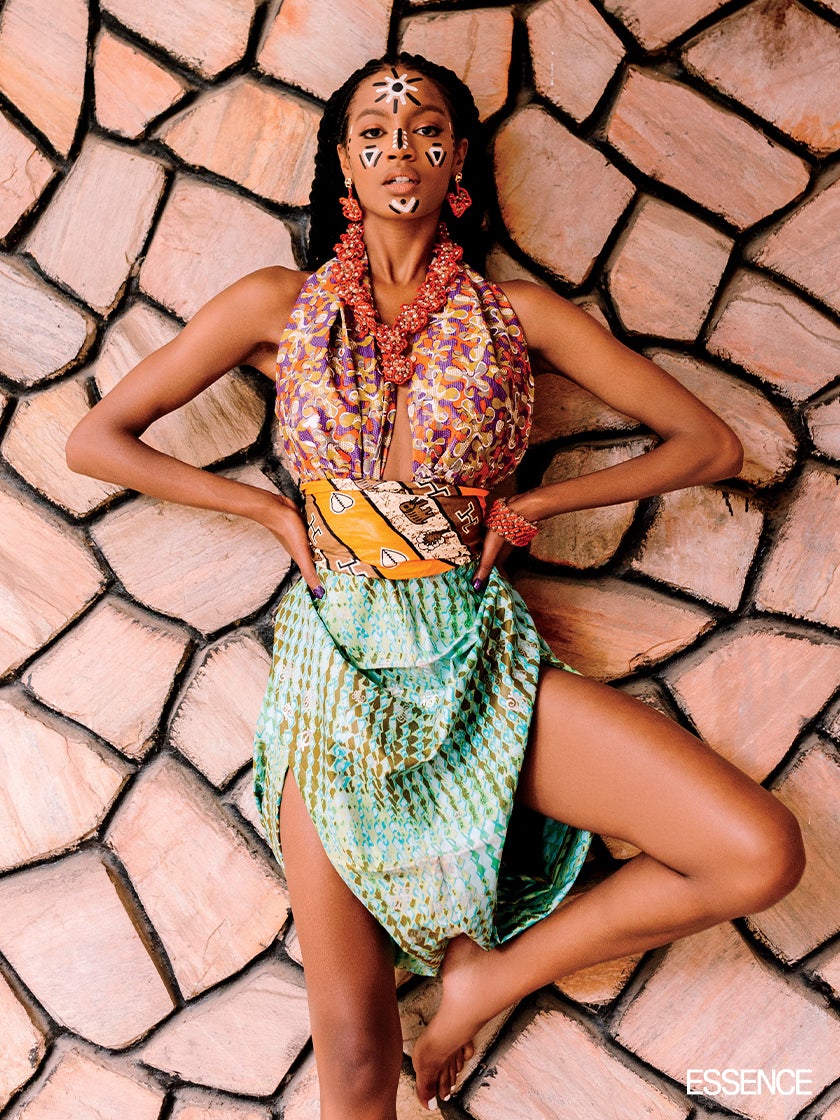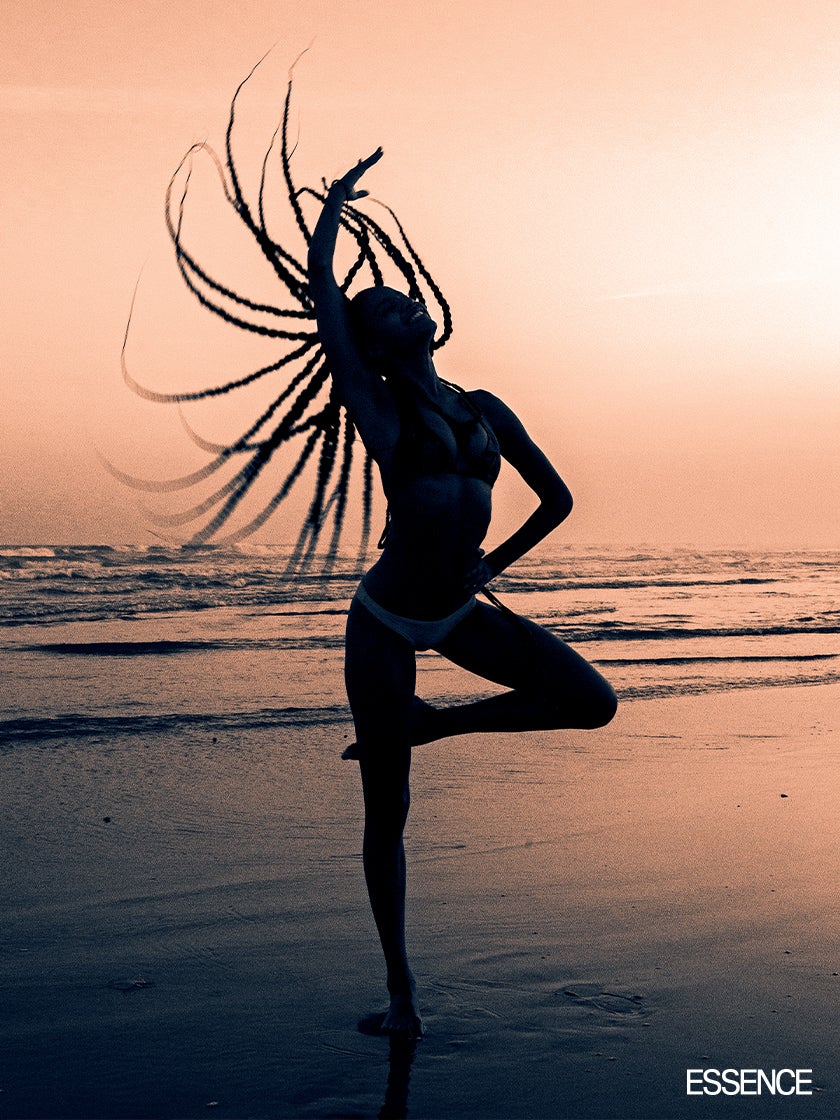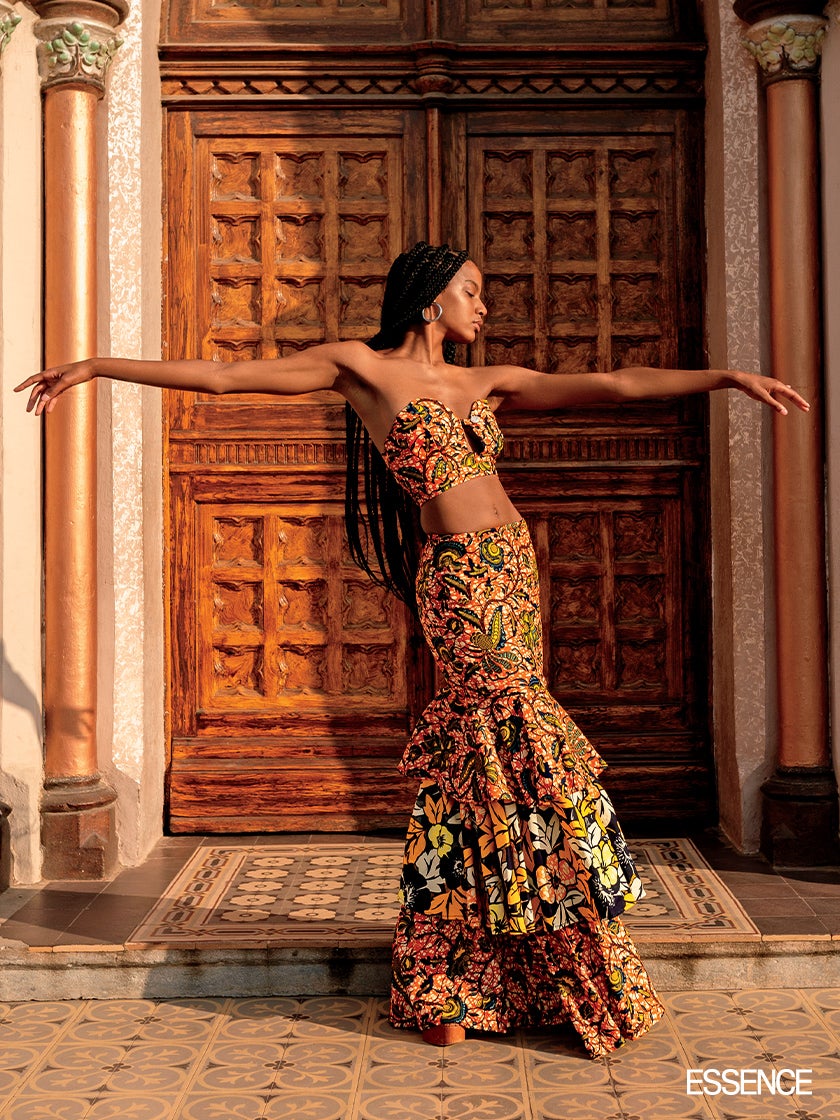
DO YOU REMEMBER YOUR FIRST HERO?
Ebonee Davis does. She recalls her greatgrandfather with an infectious joy that transports her back to the late 1990’s in Seattle. “He organized these huge community meetings,” she remembers with a smile. “It was called Redemption Hour, and he’d invite everyone—drug addicts, the unemployed, the hungry—and he’d help people.”
Back then, the young Davis was just as dazzled by her great-grandfather’s activism as she was by his style. “He was very Afrocentric,” she recalls. “Very ‘Back to Africa’ in his way of thinking, and every time we’d have a reunion, he’d come in his African wax-print two-pieces.” So when Davis, at 26, arrived in Africa for the first time, she immediately felt at home. It was December 2018. The place was Accra, Ghana, and the vibe was electric, ignited by the nation’s first official “Year of the Return.”
What caught her eye amid the festivities? The vivid African wax-print fabrics, called Ankara, that she remembered from childhood. “All I could think was, Africans are so fly,” she says. “Everything is made to fit their body. Everyone has matching headpieces.” Davis paid homage to that sense of style with this ESSENCE photo shoot, which she conceptualized and directed.
In each scene, shot in Accra’s Arts Center, she models a modern piece hand-sewn from traditional African fabric. It’s an effortless style slay, but for Davis, the chic prints are less about fashion and more about fractals. “Somewhere in this process I realized the power that African prints have,” she says. “Something very deep is happening within the intricacies of that pattern: It tells stories. They speak to us on a [subliminal] level, because our subconscious mind only understands symbols; when you look at the patterns, the subconscious mind can decipher what that pattern is saying.”
The visionary’s fiery, intellectual analysis echoes her approach to everything else, so it’s no surprise that since her entrée into professional modeling, she has turned the industry on its head. Literally. In 2016, when Davis kept encountering the coded fashion racism that pressures Black models to transform and conform, she responded by refusing to relax her hair.

She went a step further—and louder—with a passionate piece in Harper’s Bazaar about fashion’s role and responsibility in the face of racism. Within months she took her message to the TEDTalk stage, where her speech titled “Black Girl Magic in the Fashion Industry” quickly went viral.
Africans are so fly.”
Since then she’s been acclaimed as a master storyteller and new-age activist who uses her platform to spotlight inequality, especially within fashion. And like that of civil rights activist Angela Davis before her, Ebonee’s advocacy has been distilled into a single symbol: her hair. In images from her stunning Calvin Klein campaign to her groundbreaking Sports Illustrated swimsuit shoot, Davis’s Afro remains a crowning glory and a constant inspiration to millennials, who are moved by her example to be empowered and love themselves.
“What does it look like to love yourself?” she asks. “This question has been my metric for the last three years in my quest for self-improvement and self-actualization. I realized that it’s through discipline and accountability that you prove your love for yourself.” As with Angela Davis, it’s that blend of militant conviction, deep intellect and innate compassion that has expanded this Davis’s audience around the world. Instead of leveraging her growing fame for the glitz of a full-time fashionista, she’s opted for something much more aligned with her iconic namesake—civic involvement.

Through her nonprofit, Daughter, Davis provides an opportunity for women and men of color to return to Africa. “There are so many deserving people, and it really is a birthright,” she explains. “In a literal sense, it’s really what we deserve. That’s the least we are owed.”
Through her platform, Davis is helping to restore that birthright. Since her first trip, Daughter has been sending Black Americans to the Motherland, to visit countries like Togo, Benin and Ghana. “These are experiences we want people to process and share and grow the seeds of in their community,” she says.

Once again, the elder Davis comes to mind—he taught his great-granddaughter to lead with action, not lip service. When the parallels are pointed out, Davis gets quiet. Then a smile breaks across her face as she speaks in her characteristic soft and serious style: “I don’t believe in coincidences.” Nuff said.
Photography by Carlos Udun-Tawiah
